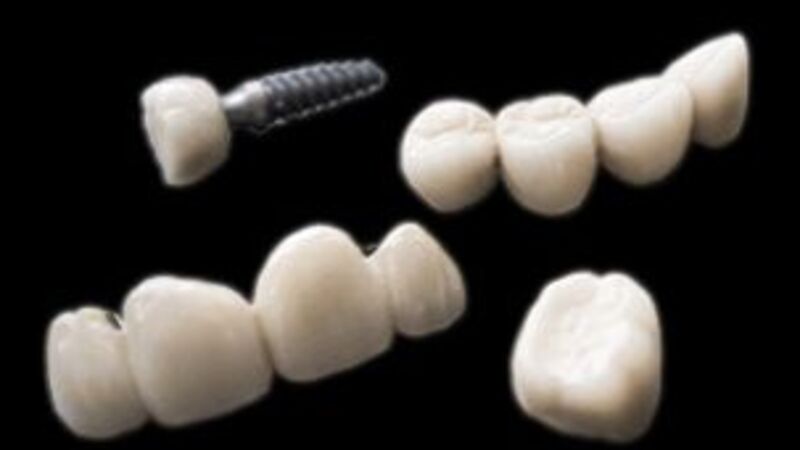If your tooth has extensive decay or has been treated with root canal therapy, your Hamilton based dentist is likely to suggest a dental crown. It will not only protect the root of the tooth but also provide a functional and longlasting part of your bite.
What Is a Tooth Crown?
In simple words, a crown is a cap, a tooth-shaped covering for a tooth. It is composed of one or more materials. The most common ones are:
- Ceramic: All-ceramic crowns are not as strong as a combination of ceramic and metal or all-metal. But they are known for their lifelike appearance.
- Metal: Gold alloys, palladium, nickel, and chromium are common choices. If the crown is completely comprised of metal, it is stronger and often used on back teeth.
- Porcelain/metal (PFM): These are the most popular crowns, as they are very strong and often as pleasing to the eye as porcelain crowns.
- Gold alloys: These crowns are a mix of gold, copper and other metals, and they are known for their strength (they don’t fracture)
Dentist like to use the porcelain fused to metal crowns, as they offer both the strength and pleasing appearance. However, they may also suggest other materials based on the patient needs and financial abilities.
The traditional process of crown placement takes 2 appointments. During the first one, the dentist gets the tooth ready for the crown, takes impressions and makes a temporary crown. The second appointment it usually within 2 weeks, during which the permanent crown is cemented on.
Why a Crown?
Dentists suggest dental crowns for any of several reasons. These include:
-
A decayed tooth
-
A cracked beyond repair tooth
-
A tooth that underwent root canal therapy
-
To improve the appearance of the teeth
-
To cover a dental implant
- To support a dental bridge
Talk to Your Dentist about Getting a Tooth Crown
Crowns are not suitable for everyone. This is why we suggest visiting Gateshead Dental, where a team of dedicated dental professionals can assess you and suggest the best treatment. Contact their office in Hamilton or visit their website for more information.


